City Tours travel template
- Passport of Nepal
- Visa requirement for Brazil

Travel from Nepal to Brazil
Brazil visa requirement for nepalese, destination : brazil.
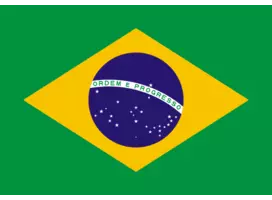
Origin : Nepal
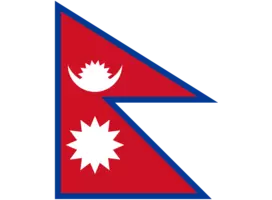
Visa Requirement
Visa Required to travel to Brazil for nationals of Nepal
Entry Recommendations (With visa)
- Visa Application Form : Fill in the application form for Brazil
- Passport Photo : Recent Photo no older than 6 months
- Passport : The original Passport (or Travel document) of applicant. Passport must have 6 months of remaining validity on the date of travel. Passport must have 2 visa pages clear of any markings.
- Current Details : If you are Employed: • An employer letter on company letterhead containing contact details, contract type, purpose and duration of the trip. Letter must state that a leave of absence has been granted and that you will be returning to your current job. • The current bank statement of the latest 6 months • Income Tax Return (ITR) • The original pay slips If Self Employed: • Include a copy of your business license • Company bank statement of the latest 6 months • Income Tax Return (ITR) If Student: • Letter from your school stating that you are registered for the upcoming semester and that you are in good standing. • No Object certificate from School or University. If Retired: • Proof of your retirement fund.
- Accomodation Proof : Hotel or Accomodation reservation in Brazil for the duration of your visit.
- Travel Proof : A round-trip flight reservations for Brazil.
- Proof of Funds : Proof of enough money for your stay and to leave Brazil, such as • Personal bank statements • Pay slips if employed • Income Tax Return (ITR) / Tax records
Additional informations
Exchange rate.
Currency used in Nepal is Nepalese Rupee ( 100 NPR = 0.87 USD )
Currency used in Brazil is Brazilian Real ( 1 BRL = 0.24 USD )
Weather similarity

Advertisment
- Passports >
- Brazil >
- Destinations >

Visa requirements for citizens of Nepal travelling to Brazil :
Visa required. Citizens of Nepal require a visa to travel to Brazil.

Check current Covid-19 entry requirements before travelling.
— FAST FACTS —
Capital: Brasília
Location: South America
Currency: Brazilian Real
More Destinations
Visa requirements for
French Guiana
Falkland islands.
We use cookies to provide a better online experience. By using this website you agree to the use of cookies and to our terms of use.
Do I need a visa to visit Brazil?

Sep 28, 2023 • 3 min read
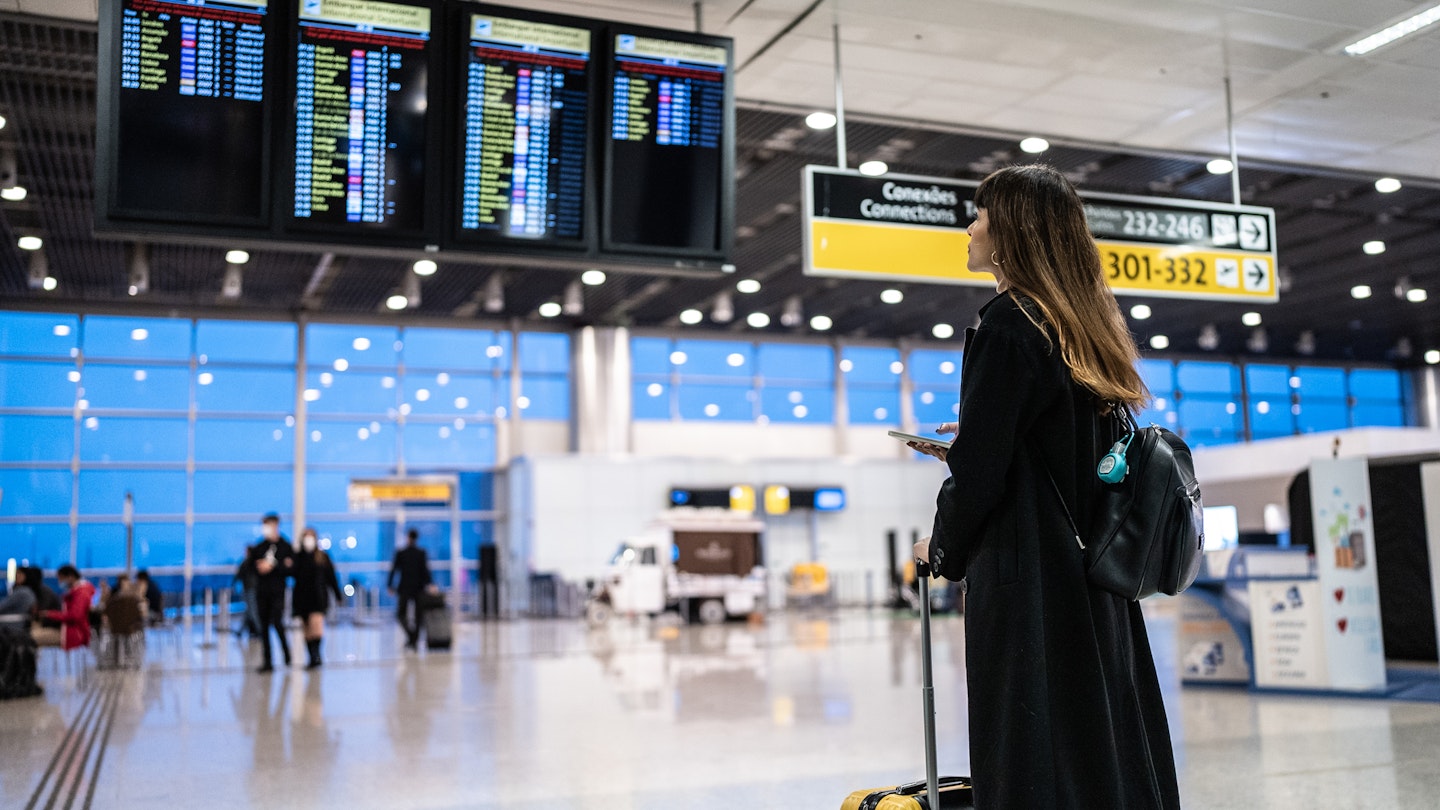
Brazil has varying visa rules depending on your country of origin © FG Trade / Getty Images
Brazil is a vast country, home to a treasure trove of diverse travel experiences. Enchanting rainforests, sprawling wetlands, buzzing cities and perfect beaches all make for spectacular stops on your itinerary.
But before you go, make sure you have your visa paperwork sorted. Here's what you need to know about Brazil’s visa policies.
Will I need to get a visa before going to Brazil?
Brazil offers different visas depending on the purpose of your travel and your country of origin. The country’s visa system is largely based on reciprocity: if Brazilian citizens can travel to the country in question without a visa, those citizens can travel to Brazil without a visa for any reason as well. The only exceptions to this rule are the United States, Australia, Canada and Japan – travelers from these countries can now visit Brazil for tourism without a visa, thanks to a policy change in July 2019.
But citizens of dozens of other countries can also travel to Brazil without a visa; check this Brazilian consulate general website for a comprehensive list. Visitors who don’t require visas can stay in Brazil for up to 90 days per entry, and they can’t exceed 180 days within 12 months. Travelers need to have a valid passport with at least two blank pages left.

Types of tourist visas for Brazil
For citizens of countries who do need a visa to enter Brazil, the primary tourist visa is the VIVIS, which covers tourism and business travel. Traveling for business does require some additional paperwork, including a letter from the applicant’s employer on company letterhead detailing the applicant’s job, the purpose of the trip, the length of the trip and other employment details. Check your nearest consulate’s website for a full list of business letter requirements.
Visa costs vary depending on the traveler’s country of origin. The visa costs US$180 for Angolan citizens, $85 for Algerian citizens, and $115 for Chinese citizens. The cost for travelers from all other countries is $80. Applications for visas can only be completed through Brazil’s E-consular platform . Apply for your visa well in advance of your trip in case there are system delays.
Visas for working are known as VITEM VI visas, and they allow visa holders to work and study in Brazil for up to 90 days in a 12-month period. The following countries are exempt from having to apply for the VITEM visa: Austria, Chile, Colombia, Finland, France, Germany, Iceland, the Netherlands, Paraguay, Philippines, Poland, Spain, Suriname, Trinidad and Tobago, and the United Kingdom.
Can I extend my visa for Brazil?
Extensions aren’t available for every country – check with your local Brazilian consulate. If an extension is available to you, it will be granted by the Federal Police Department in Brazil. Note that your total stay still can’t exceed 180 days in 12 months.
Do I need a yellow fever vaccine to enter Brazil?
Brazil doesn’t require a yellow fever vaccination to enter, but it does recommend getting the vaccine if you are headed to any of the following states: Acre, Amapá, Amazonas, Distrito Federal, Goiás, Maranhão, Mato Grosso, Mato Grosso do Sul, Minas Gerais, Pará, Rondonia, Roraima and Tocantins.
This article was first published Oct 13, 2021 and updated Sep 28, 2023.
Explore related stories

Tips & Advice
Mar 1, 2024 • 9 min read
Don't get overwhelmed by the scale of Brazil – get organized! Here are our top 10 favorite places to visit in this South American sensation.

Dec 27, 2023 • 8 min read

Dec 27, 2023 • 4 min read
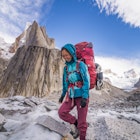
Nov 18, 2023 • 7 min read

Nov 9, 2023 • 4 min read

Nov 8, 2023 • 5 min read

Nov 8, 2023 • 4 min read

Oct 18, 2023 • 5 min read
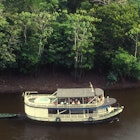
Oct 7, 2023 • 8 min read

Oct 6, 2023 • 4 min read

Ministry of Home Affairs
Department of immigration.
Kalikasthan, Kathmandu.
- Tourist Visa
Tourist Visa 2074-10-18
Immigration Offices, under Department of Immigration have been facilitating tourists flying to Nepal by providing Visa on Arrival. 'On Arrival' visa procedure is very quick and simple. You can expect some queues during peak Tourist season. If you wish to skip those queues, you can also consider getting Visa from Nepalese Diplomatic Missions stationed abroad prior to your arrival. Choice is yours.
If you have obtained visa from Nepalese Diplomatic Missions, then you must enter Nepal within six months from the visa issued date. Your total stay is counted starting from the day you enter into Nepal.
Visas obtained on Arrival at the Entry and Exit points are 'Tourist Visas'. They bear multiple Re entry facility. Tourist Visa 'On Arrival' is the only entry visa to Nepal. If you are visiting Nepal for the purposes other than Tourism (sightseeing, tour, travel, mountaineering, trekking, visiting friends and families), you should still get ' Tourist Visa' to get into the country. However, you must change the category of visa as per your purpose and length of stay in Nepal from Department of Immigration by producing required documents.
Nationals of following countries are requested to acquire Visa prior their arrival from their nearby Diplomatic missions (Embassies/consulates) of Nepal Government.
- Afghanistan
- Refugees with travel document
Please follow these simple procedures for Tourist Visa on Arrival at the airport (TIA) if you have not acquired Visa prior to boarding the plane.
- Fill in ' Arrival Card '
- Fill in Online ‘Tourist Visa ‘form ( you can fill it up prior to your arrival visiting our official website Department of Immigration / fill it up using Kiosk machines upon your arrival at the airport). If you fill it from the website, you will get submission Receipt with barcode, please print it out and bring it along for acquiring visa. It works for fifteen days and becomes invalid then after. If so, you will have to fill it up again.
- Make payment at the bank according to your visa requirement ( 15/30/90 Days)
- Get the receipt
While you can use different modes of payments (at visa fees collection counter), we advise you to carry some cash to be on the safe side.
On Arrival Visa Fee at Entry Points
15 Days – 30 USD
30 Days – 50 USD
90 Days – 125 USD
- Proceed to the Immigration Desk with your online form, payment receipts and your passport
- Hand in your documents to immigration officer for visa processing. He/she issues visa to you upon his/her satisfaction.
Visa Extension Fee
- Tourist visa extension is done for minimum 15 days with USD 45 and USD 3 per day for additional days.
- In the case of delay less than 150 days additional USD 5 per day as late fine.
Gratis Visa (Visa for Free)
Gratis Visa is issued free of cost in case of following categories of Visa applicants:
- Children below 10 years except US citizens
- Up to 30 days for SAARC Citizen (except Afghanistan) visiting Nepal for the first time in a given visa Year. Afghan citizen are eligible for Gratis Visa on Arrival only upon the recommendation of Department of Immigration. If you are an Afghan citizen, you can request concerned institution inviting you to Nepal for necessary paperwork with Department of Immigration to get you Gratis Visa 'On Arrival'.
- Non Residential Nepalese(NRN) card holder ( issued by MoFA /Nepalese diplomatic missions abroad)
- Chinese Nationals for 150 days
Officials from
- Thailand – Exemption up to 90 Days
- Russian Federation – Exemption up to 90 Days
- People’s Republic of China – Exemption up to 30 Days
- Federal Republic of Brazil – Exemption up to 90 Days
- Myanmar - Exemption up to 90 Days
- Vietnam - Exemption up to 90 Days
- Cambodia - Exemption up to 30 Days
- Mongolia - Exemption up to 90 Days
- Jordan - Exemption up to 90 Days
- State of Israel - Exemption up to 90 Days
- Georgia - Exemption up to 90 Days
- State of Qatar - Exemption up to 90 Days
do not need Entry Visa based on reciprocal visa waiver Agreement
Visas of all kinds including ‘Gratis’ issued at the Airport are Tourist Visas. Contact Department of Immigration for extending your visa or changing the category of your visa. Tourist Visa extension can be done from Immigration Office, Pokhara too. Non tourist visa extension can be done only at Department of Immigration (if eligible) for a period of maximum one year (except business visa).

Latest Update:

Nirmal Raj Kafle
Message from Ambassador
Welcome to the official website of the Embassy of Nepal in Brasilia, Brazil! This website provides information on Nepal, the Embassy's activities as well as visa, passport and other consular matters. The Embassy of Nepal in Brasilia was established in 2010. Apart from Brazil, this Embassy is concurrently accredited to Antigua and Barbuda, Argentina, Bolivia, Chile, Colombia, Guyana, Paraguay, Peru, St. Kitts and Nevis, St. Vincent and Grenadines, Uruguay and Venezuela. Nepal and Brazil established diplomatic relations in 1976. The bilateral relations are characterized by goodwill and friendship at the levels of Government, the private sector and people in general. Over the years, the bilateral relations and the areas of cooperation have further deepened and expanded. Except for the period of the COVID-19 pandemic, the trade volume and tourism has witnessed a steady growth. At the multilateral platforms, our two countries have held similar views on multilateralism, climate change, and other global agendas. They have shared vision of achieving a just and equitable world order and … [ Read More ... ]
LATEST UPDATE
Presentation of credentials in chile, चिलीमा राहदानी तथा कन्सुलर सेवा बारे सूचना, press release on the opening of exponepal 2024 in brasilia, designation of “information officer” at the embassy, ambassador of nepal presents his letters of credence to the president of colombia, press release, about nepal.

Nepal is a land-locked country in South Asia located between China and India, two huge countries with emerging economies. It spreads over an area of 147,516 sq km. Politically, it has been designated as a Federal Democratic Republic country since May 2008. Nepal is officially a secular state. Hinduism is the main religious faith among the majority of the Nepali people. The second largest faith by number of followers is Buddhism as Nepal is the birthplace of Lord Buddha. Christianity and Islam also co-exist peacefully and harmoniously in Nepal. Rich cultural heritage and lively diverse cultural traditions are special features of Nepal. Nepal has a multi-cultural, multi-religious and multi-lingual society. Nepal is one of the richest countries in the world in terms of bio- diversity due to its unique geographical position and altitudinal variation. Nepal is endowed with rich hydropower potentials with perennial rivers and glaciers flowing from Himalayan ranges. The elevation of the country ranges from 60 m above sea level to the highest point on earth, Mt. Everest at 8848 m, all within a distance of 150 km resulting into climatic conditions from sub-tropical to Arctic. There are … [ Read More ... ]

Widget Title Here
Publication.
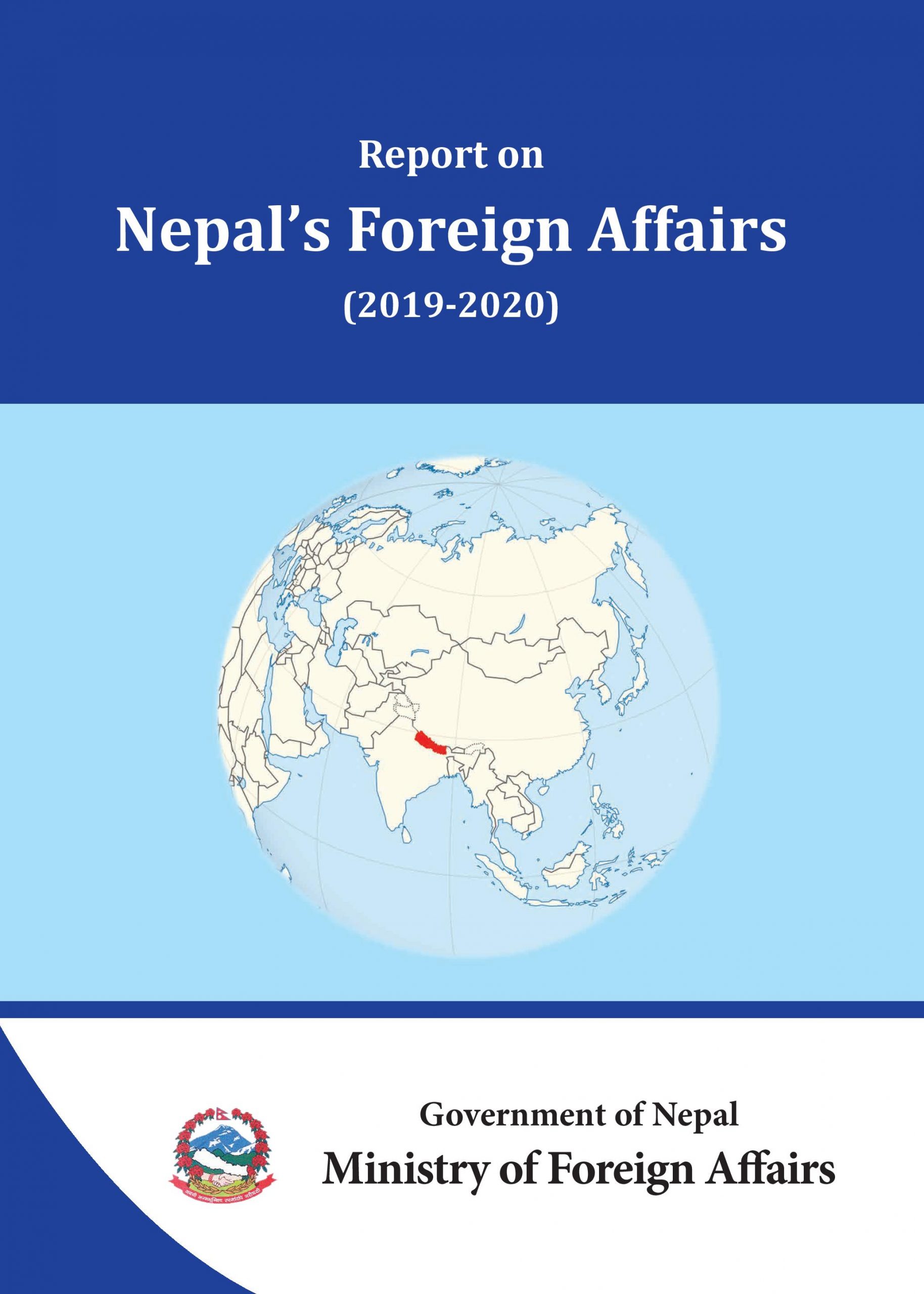
- Photo Gallery
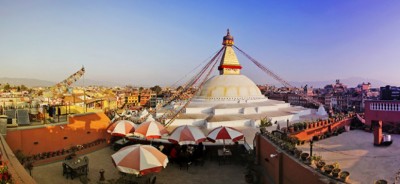
Video Gallery

- MoFA History
- Vision/Mission
- Roles/Function
- Organization
UN SANCTION LIST
- Sanction list of Indivisuals & Entities as updated by UN
- National Risk Assessment Report on AML/CFT
- Remittance companires as listed in Nepal Rastra Bank
FOREIGN POLICY
- Nepal’s Foreign Policy
- Nepal’s Bilateral Relation
- Nepal’s Diplomatic Relation
DIPLOMATIC MISSION
- Nepalese Missions Overseas
- Foreign Missions Accredited to Nepal
CONSULAR AFFAIRS
- For Nepalese Citizens
- For Foreigners Visiting Nepal
ABOUT NEPAL
- Nepal Profile
- History of Nepal
- Investment In Nepal
- Tourism in Nepal
- Culture & Society of Nepal
- Nepal Govt. Portal
USEFUL LINKS
- Office of President of Nepal
- Office of the Prime Minister and Council of Ministers
- Portal of Nepal Government
- Nepal Rastra Bank
- Department of Immigration
- Department of Foreign Employment
- Department of Passports
- Department of Consular Services
- Nepali Missions in Abroad
Get ready to embark on an unforgettable journey at the premier online pinup casino for betting! With top-notch odds, generous bonuses and promotions, as well as fantastic gifts available to you when you play with us, rest assured that your experience is nothing less than incredible. You can bet on a variety of events and have access to extensive sports betting options too. Moreover, withdrawing winnings is both effortless and secure – all personal data remains safe with us!
With the bookmaker office mostbet , you can easily access a variety of sports lines and place bets without needing to verify your personal details again. Even better, the application can be downloaded so that you can continue to play comfortably from wherever it may please you!
Discover a world of possibilities at our online zetcasino casino where you can win real money with bookmaker bets! With an abundance of sports events, we guarantee that there will be something for everyone to bet on. Plus, your funds are secured when transacting them with us – whether it’s for deposits or withdrawals. Cyber sports fans rejoice too as we also have incredible odds for those who take part in this activity!
Looking for a reliable, secure online pixbet casino that provides generous bonuses and promotions? You’ve found it! Our bookmaker’s office offers everything you need to stay entertained during sporting events without worrying about the security of your personal data. We take immense pride in our friendly atmosphere and user-friendly interface which guarantees maximum protection at all times. Don’t miss out on this opportunity – join us today!
Are you a die-hard sports fan? Look no further than this dependable mostbet online casino with a bookmaker’s office. Not only are they devoted to their loyal players and show appreciation through generous bonuses, contests, and more; but they also give fair odds in transparent betting lines so that your experience is both pleasurable and satisfying. Place wagers with confidence when gambling at this premier casino!
Sports fans rejoice! This bookmaker’s office N1 casino is the perfect place for you. Not only do they have an efficient verification system and quick payment process, but their customer service staff is always on hand to address your questions in a timely manner. As if that weren’t enough, this gem also offers an unbeatable cashback system!
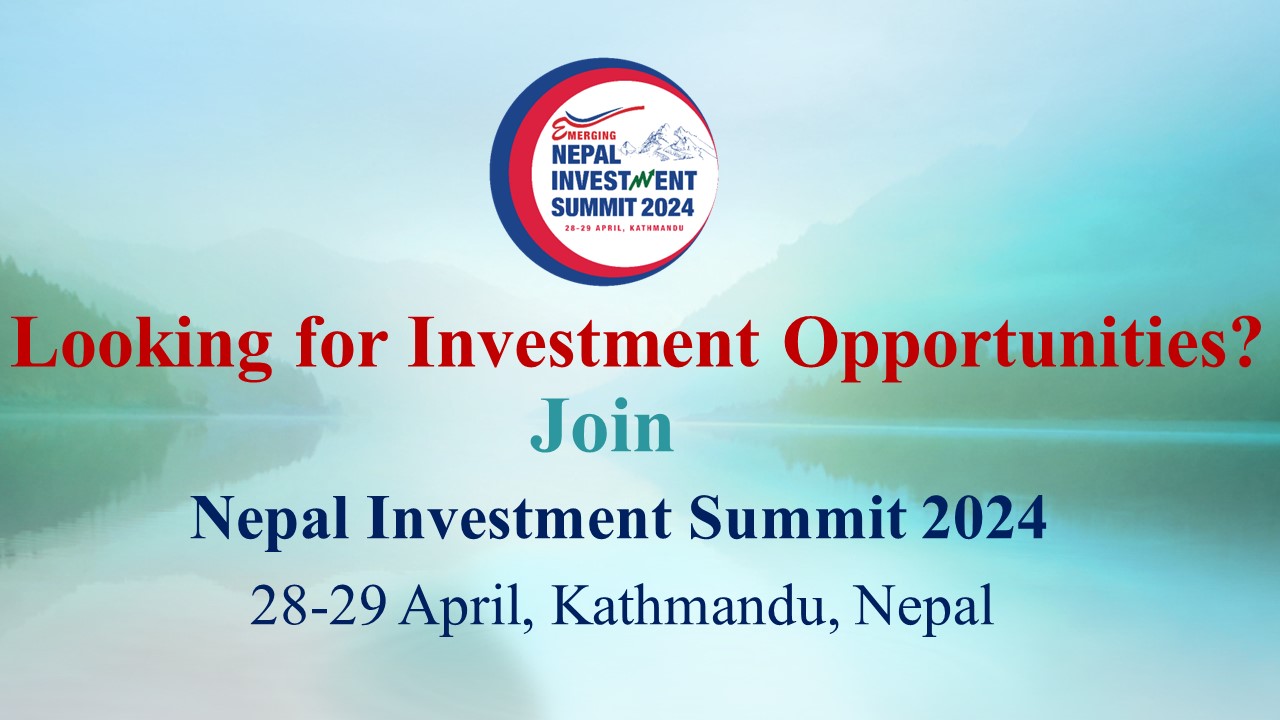
Attractions
- UNESCO World Heritage Sites
- Protected Areas
- Eight Thousanders
- Pilgrimage Sites
- Bungee Jumping
- Motor Biking
- Rafting & Kayaking
- Mountain Biking
- Paragliding
- Cave Exploration
- Bird Watching
- Mountain Viewing
- Jungle Discovery
- Butterfly Watching
- Nagarkot Sunrise and Sunset
- Traditional Crafts
- Meet the People
- Village Tours
- Food & Culinary
- Cultural Tours
- Heritage Walk
- Museum Tours
- Faith Healing
- Panchakarma Treatment
- Sound Meditation
- Natural Hot Water Springs in Nepal
- Pilgrimage Tours
- Destination Wedding
- Indra Jatra
- Chhat Parva
- Event Calendar
- Festival Highlights
- Travel with children
- Ganesh Himal Trek
- Chandragiri - Chitlang - Kulekhani
- Pilgrimage to Doleshwar mahadev Temple
About Nepal
Travel details, tourist visa.
- Local Transportation
- Trekking Permit
- Park Entry Fees
- Heritage Site Entry Fees
- Tourist Police
- Safety in the Mountains
Book Your Trip
- Book Experience
- Travel Updates
Tribhuvan International Airport and Gautam Buddha International Airport (GBIA) are the international airport of Nepal. Immigration Office, TIA (Tribhuvan International Airport) under Department of Immigration has been facilitating tourists flying to Nepal by providing Visa on Arrival. 'On Arrival' visa procedure is very quick and simple. You can expect some queues during peak Tourist season. If you wish to skip those queues, you can also consider getting Visa from Nepalese Diplomatic Missions stationed abroad prior to your arrival. Choice is yours.
If you have obtained visa from Nepalese Diplomatic Missions, then you must enter Nepal within six months from the visa issued date. Your total stay is counted starting from the day you enter into Nepal.
Visas obtained on Arrival at the Entry and Exit points are 'Tourist Visas'. They bear multiple Re entry facility. Tourist Visa 'On Arrival' is the only entry visa to Nepal. If you are visiting Nepal for the purposes other than Tourism (sightseeing, tour, travel, mountaineering, trekking, visiting friends and families), you should still get ' Tourist Visa' to get into the country. However, you must change the category of visa as per your purpose and length of stay in Nepal from Department of Immigration by producing required documents.
Nationals of following countries are requested to acquire Visa prior their arrival from their nearby Diplomatic missions (Embassies/consulates) of Nepal Government.
- Afghanistan
- Refugees with travel document
Please follow these simple procedures for Tourist Visa on Arrival at the airport (TIA) if you have not acquired Visa prior to boarding the plane.
1st Step
- Fill in ' Arrival Card '
- Fill in Online ‘Tourist Visa ‘form ( you can fill it up prior to your arrival visiting our official website Department of Immigration / fill it up using Kiosk machines upon your arrival at the airport). If you fill it from the website, you will get submission Receipt with barcode, please print it out and bring it along for acquiring visa. It works for fifteen days and becomes invalid then after. If so, you will have to fill it up again.
2nd Step
- Make payment at the bank according to your visa requirement ( 15/30/90 Days)
- Get the receipt
While you can use different modes of payments (at visa fees collection counter), we advise you to carry some cash to be on the safe side.
On Arrival Visa Fee at Entry Points
15 Days – 30 USD
30 Days – 50 USD
90 Days – 125 USD
3rd Step
- Proceed to the Immigration Desk with your online form, payment receipts and your passport
- Hand in your documents to immigration officer for visa processing. He/she issues visa to you upon his/her satisfaction.
Visa Extension Fee
- Tourist visa extension is done for minimum 15 days with USD 45 and USD 3 per day for additional days.
- In the case of delay less than 150 days additional USD 5 per day as late fine.
Gratis Visa (Visa for Free)
Gratis Visa is issued free of cost in case of following categories of Visa applicants:
- Children below 10 years except US citizens
- Up to 30 days for SAARC Citizen (except Afghanistan) visiting Nepal for the first time in a given visa Year. Afghan citizen are eligible for Gratis Visa on Arrival only upon the recommendation of Department of Immigration. If you are an Afghan citizen, you can request concerned institution inviting you to Nepal for necessary paperwork with Department of Immigration to get you Gratis Visa 'On Arrival'.
- Non Residential Nepalese(NRN) card holder ( issued by MoFA /Nepalese diplomatic missions abroad)
- Chinese Nationals
Officials from China, Brazil, Russia and Thailand do not need Entry Visa based on reciprocal visa waiver Agreement
Visas of all kinds including ‘Gratis’ issued at the Airport are Tourist Visas. Contact Department of Immigration for extending your visa or changing the category of your visa. Tourist Visa extension can be done from Immigration Office, Pokhara too. Non tourist visa extension can be done only at Department of Immigration (if eligible) for a period of maximum one year (except business visa).
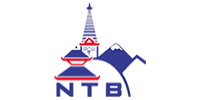
Nepal Tourism Board is a national tourism organization of Nepal established in 1998 by an Act of Parliament in the form of partnership between the Government of Nepal and private sector tourism industry to develop and market Nepal as an attractive tourist destination. The Board provides platform for vision-drawn leadership for Nepal’s tourism sector by integrating Government commitment with the dynamism of private sector.
Nepal Tourism Board
Other sites.
- Tenders & Trade
- Photo Nepal
Feedback Form

Ministry of Home Affairs
Department of immigration, immigration office, tribhuvan international airport.
- On Arrival (Tourist)...
On Arrival (Tourist) VISA 2075-10-27
Visa information.
Tribhuvan International Airport is the only international airport of Nepal. Immigration Office, TIA has been facilitating Foreigner flying to Nepal by providing Visa on Arrival.
- Visas of all kinds including ‘Gratis’ issued at the Airport are Tourist Visas.
- Contact Department of Immigration for extending your visa or changing the category of your visa.
- Tourist Visa extension can be done from Immigration Office, Pokhara too.
- Non tourist visa extension can be done only at Department of Immigration (if eligible) for a period of maximum one year (except business visa).

Tourist Visa
Please follow these simple procedures for Tourist Visa on Arrival at the airport (TIA). Visas obtained on Arrival at the Entry and Exit points are 'Tourist Visas'. They bear multiple Re-Entry facility. Tourist Visa 'On Arrival' is the only entry visa to Nepal. 'On Arrival' visa procedure is very quick and simple.
Elligble Person
Tourist Visa - All Nationalites except 'Prohibition to Visa on Arrival'
Transit Visa -Foreign nationals having a transit in Nepal can obtain Transit Visa to enter into the country to spend a night (24 hours) by producing a proof of transit.
Prohibition to Visa on Arrival
Foreign Nationals (except officials and diplomatic passport holders) of following 12 countries are requested to obtain Tourist visa from Nepalese diplomatic mission (Embassies and Consulates) prior to their departure to Nepal.
Visa Period and Facility
Maximum 150 Days in 1 year (Count from 1st Decemeber to 30 December), Visa has multiple Re-Entry facility.
Visa Facility
Gratis Visa is issued free of cost to the elligble catagories of Visa applicants.
Visa Waiver / Exemptions (Do not need Entry Visa)
Visa Elligible
Diplomatic and Official or Service Passport holders of the listed countries are exempted from the visa requirement to enter and stay in Nepal. Listed countries are:- China, Brazil, Russia, Thailand, Mangolia and Myanmar.
Nepal Tourist Visa
- Table of contents
Traveling to Nepal
Who needs a nepal visa, nepal tourist visa validity, a complete arrival card, a complete visa application form, a valid passport, receipt of visa fees payment, visa prior to arrival, nepal tourist visa fees, where to apply, nepal tourist visa processing time, visa on arrival, nepal visa extension, nepal tourist visa faqs.
Each year, many tourists come to Nepal to go trekking or mountain climbing, visit historical sites, sample the local cuisine, and engage in other leisure activities. Nepal is home to ten of the fourteen tallest mountains in the world, as well as rich history and vibrant local culture, making it a unique destination for tourists of all kinds.
The following nationalities must apply for a tourist visa prior to traveling to Nepal:
Afghanistan, Cameroon, Eswatini, Ethiopia, Ghana, Iraq, Liberia, Nigeria, Somalia, Syria, Zimbabwe, and Palestine.
The Nepal Tourist visa is intended as a travel document for leisure purposes including, but not limited to, sightseeing, touring, trekking, and visiting friends/family.
Tourist visas are available for different periods of stay. Applicants can request a 15-day, 30-day, or 90-day visa when they apply. Tourists may not stay more than 150 days within a visa year (January to December) including extensions. The Tourist visa is available as a single-entry and multiple-entry visa.
Nepal Tourist Visa Requirements
To apply for a Nepal Tourist visa, all applicants will have to submit some basic documents depending on their nationality and the method of submission.
The following list contains the requirements for both the Tourist visa on arrival and the Tourist visa prior to arrival:
The Arrival Card must be filled out upon arrival in Nepal at the Tribhuvan International Airport.
Applicants can complete the Tourist visa application form through the official online portal before arriving or at one of the kiosks upon arrival. Applicants will receive a confirmation receipt with an official barcode. They must have the receipt with them when they approach the immigration officer for visa processing.
Passports (or travel documents) must be valid upon arrival in Nepal. Passport copies and handwritten passports are not accepted.
Payment can be made at the visa collections counter upon arrival to the airport. Applicants must present the receipt of payment to the immigration officer for visa processing.
The application form can be completed online . Applicants will receive a receipt of submission with an official barcode.
Passports (or travel documents) must be valid for at least six months from the date of entry into Nepal and have at least two blank pages for official use. Passport copies and handwritten passports will not be accepted.
The payment method will depend on the embassy or consulate where the applicant submits their tourist visa application.
Nepal Tourist Visa Application
Depending on whether the Tourist visa is a visa on arrival or a visa obtained prior to arrival, the visa application steps may include:
All travelers arriving in Nepal must complete an Arrival Card.
Application forms can be completed through the official online portal or at the Tribhuvan International Airport upon arrival. Either way, travelers must have a confirmation receipt with a valid barcode on it to present to the immigration officers at the Nepalese border.
There are several methods of payment available at the visa fees collection counter at the Tribhuvan International Airport. Applicants must keep the receipt of their payment to present to the immigration officer at the border.
Applicants can present their application form submission receipt, passport (or travel documents), and the receipt of payment for the visa fees to the immigration officer at the border for processing.
Application forms can be filled out through the official online portal . Applicants must print the completed form and their confirmation receipt with the valid barcode.
Applicants must prepare all the documents required by the relevant Nepalese embassy or consulate where they plan to submit their visa application.
Depending on the location of submission, the applicant must either retrieve their passport with the new tourist visa stuck inside from the embassy or consulate OR they will receive the passport by post.
The fees for the Nepal tourist visa will depend on the intended duration of stay and the number of entries. For a stay of 15 days, the cost is 30 USD; for a stay of 30 days, the cost is 50 USD; and for a stay of 90 days, the cost is 125 USD.
Some categories of applicants are exempt from the visa fees, including:
- Children under 10 (except US citizens)
- SAARC Citizens (except Afghanis) once a visa year (January to December) for stays of up to 30 days.
- Non-Residential Nepalese (NRN) cardholders
- Chinese Nationals
The Nepal Tourist visa can be obtained by most foreign nationals as a visa on arrival.
Nationals from Afghanistan, Cameroon, Eswatini, Ethiopia, Ghana, Iraq, Liberia, Nigeria, Somalia, Syria, Zimbabwe, and Palestine must apply for the Tourist visa via the relevant Nepalese Diplomatic Mission (embassy or consulate).
The processing time for the Nepal Tourist visa will vary depending on the applicant’s nationality and the method of submission.
Approved Visa Applications
After presenting the required documents to the immigration officer, travelers will receive a decision on the spot. If the Tourist visa is approved at the airport, the applicant will be permitted to enter the country immediately.
If approved, the applicant can retrieve their passport with the tourist visa stuck inside from the relevant embassy. Alternatively, they might receive the passport with the visa by post. It’s important to double-check that the visa information matches the identification information as written on the passport.
It is possible to extend the Nepal Tourist visa for up to 150 days in a single visa year (January to December). Extensions must be made for a minimum of 15 days. The cost is 3 USD per day. There is a 5 USD per day late fine if any delay occurs. An additional 25 USD will apply for tourists who request multiple entries.
The Tourist visa is a travel document that allows foreign nationals to enter Nepal for leisure purposes such as sightseeing or visiting friends/family.
The Nepal Tourist visa is available for periods of stay of 15 days, 30 days, and 90 days. It can be extended for up to 150 days in a single visa year (January to December). The period of stay will be determined based on the purpose of travel.
The fees for the Nepal tourist visa will depend on the intended duration of stay and the number of entries. For a stay of 15 days, the cost is 30 USD; for a stay of 30 days, the cost is 50 USD; and for a stay of 90 days, the cost is 125 USD. Some categories of applicants are exempt from the visa fees, including: • Children under 10 • SAARC Citizens (except Afghanis) once a visa year (January to December) for stays of up to 30 days. • Non-Residential Nepalese (NRN) cardholders • Chinese Nationals
The Nepal Tourist visa can be obtained by most foreign nationals either online through the official immigration portal or as a visa on arrival at the Tribhuvan International Airport. Nationals from Afghanistan, Cameroon, Eswatini, Ethiopia, Ghana, Iraq, Liberia, Nigeria, Somalia, Syria, Zimbabwe, and Palestine must apply for the Tourist visa via the relevant Nepalese Diplomatic Mission (embassy or consulate).
Check if you need a visa for your next destination
Latest news and articles.

Greece unveils visa-on-arrival program for Turkish tourists to 10 islands

Ireland imposes visa requirements on citizens of Dominica, Vanuatu, and Honduras

The essential traveler's guide to understanding various types of visas
- Nepal Visa Exemption
Nepalese visa for Brazilian citizens
Visa requirements:, nepal tourist visa requirements:.
- Holding Brazilian passport that is valid for six months beyond the period of the intended stay in Nepal.
- Proof of onward travel (departure) from Nepal.
If you are looking for Nepal visa information, such as available types of visas, or how to apply from Brazil, we recommend you visit or contact the embassy or consulate of Nepal nearest your place of residence.
- Brasilia : The Embassy of Nepal in Brasilia, Brazil (Working hours: Close now. Open in 7 hours 30 minutes )
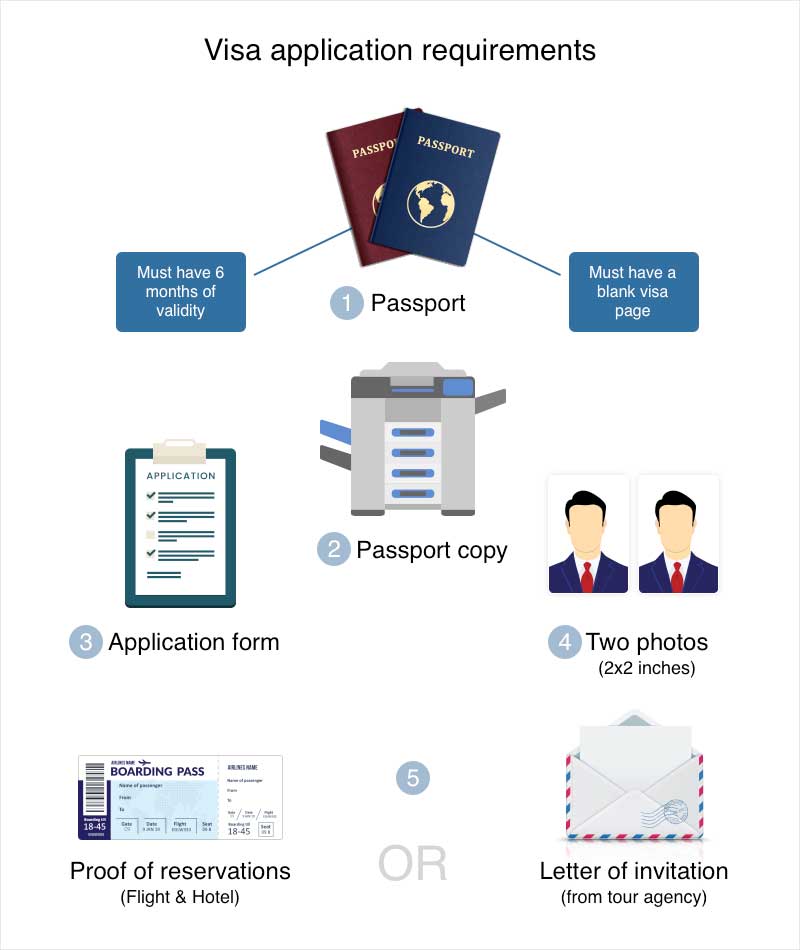
Tourism Statistics Chart
The line chart shows the number of visitors from Brazil traveling to Nepal from 2008 to 2018.
References: UNWTO.org , World Bank and multiple sources. (This data is for informational purposes only. Please see our disclaimer page for more information.)
Nepal & Brazil comparison
Nepal's area is approximately 143,350 km2 (55,347 sq mi), while the area of Brazil is approximately 8,358,140 km2 (3,227,094 sq mi). This means Brazil is 58.31 times bigger than Nepal.
As of May 2024, Nepal's population is ~31.3 million people - 187,388,197 fewer people than the population of Brazil.
We have highlighted Nepal & Brazil’s relative positions on world's map for your reference.
Frequently asked questions, answered
How many visitors from brazil travel to nepal in one year.
The number of visitors from Brazil visiting Nepal in 2018 was approximately 9,396.
Comments (0)

Do you need a travel visa?
- Afghanistan
- American Samoa
- Antigua and Barbuda
- Bosnia and Herzegovina
- British Virgin Islands
- Burkina Faso
- Cayman Islands
- Central African Republic
- Christmas Island
- Cook Islands
- Côte d'Ivoire
- Czech Republic
- Democratic Republic of the Congo
- Dominican Republic
- El Salvador
- Equatorial Guinea
- Falkland Islands
- Faroe Islands
- French Guiana
- French Polynesia
- Guinea-Bissau
- Liechtenstein
- Marshall Islands
- Netherlands
- New Caledonia
- New Zealand
- Northern Mariana Islands
- North Korea
- North Macedonia
- Papua New Guinea
- Philippines
- Puerto Rico
- Republic of the Congo
- Saint Helena
- Saint Kitts and Nevis
- Saint Lucia
- Saint Vincent and the Grenadines
- São Tomé and Príncipe
- Saudi Arabia
- Sierra Leone
- Sint Maarten
- Solomon Islands
- South Africa
- South Korea
- South Sudan
- Switzerland
- Timor-Leste
- Trinidad and Tobago
- Turkmenistan
- Turks and Caicos
- United Arab Emirates
- United Kingdom
- United States
- U.S. Virgin Islands
- Wallis and Futuna
Today’s Forecast
Useful information.
- Kathmandu to Brasilia: 14257.18 km (8859.00 mi)
- Travel time: 29 hours 42 minutes
This page was last updated on: May 2024
Update April 12, 2024
Information for u.s. citizens in the middle east.
- Travel Advisories |
- Contact Us |
- MyTravelGov |
Find U.S. Embassies & Consulates
Travel.state.gov, congressional liaison, special issuance agency, u.s. passports, international travel, intercountry adoption, international parental child abduction, records and authentications, popular links, travel advisories, mytravelgov, stay connected, legal resources, legal information, info for u.s. law enforcement, replace or certify documents.
Before You Go
Learn About Your Destination
While Abroad
Emergencies
Share this page:
Travel Advisory December 18, 2023
Nepal - level 2: exercise increased caution.
Reissued after periodic review with updates to risk indicators and "if you decide to travel" section.
Exercise increased caution in Nepal due to the potential for isolated political violence .
Country Summary: Political demonstrations intended to be peaceful can sometimes escalate into violence and may be met with force by Nepali authorities.
Read the country information page for additional information on travel to Nepal.
If you decide to travel to Nepal:
- Avoid demonstrations and crowds.
- Do not trek or climb alone. The Government of Nepal requires solo or foreign independent trekkers (FITs) to use a local guide or porter while trekking in Nepal's official national parks and protected areas.
- Review the Adventure Travel Page before your trip.
- Enroll in the Smart Traveler Enrollment Program ( STEP ) to receive Alerts and make it easier to locate you in an emergency.
- Follow the Department of State on Facebook and Twitter .
- Review the Country Security Report for Nepal.
- Visit the CDC page for the latest Travel Health Information related to your travel.
- U.S. citizens who travel abroad should always have a contingency plan for emergency situations. Review the Traveler’s Checklist .
Embassy Messages
View Alerts and Messages Archive
Quick Facts
Must have six months remaining validity or more at time of entry.
At least one blank visa page (not endorsements page) required for entry visa.
COVID-19 vaccination/negative PCR test report is not required (Effective May 26, 2023)
US $5,000; Pure/raw/unworked gold and silver are strictly prohibited; Worked gold/jewelry up to 50 grams and worked silver/jewelry up to 100 grams are allowed. Indian currency in denominations greater than 100 rupees notes.
US $5,000; Pure/raw/unworked gold and silver are strictly prohibited; Worked gold/jewelry up to 50 grams and worked silver/jewelry up to 100 grams are allowed; Indian currency in denominations greater than 100 rupees notes. Nepalese currency no more than Rs. 5000.
Embassies and Consulates
U.s. embassy kathmandu.
Maharajgunj Kathmandu, Nepal Telephone: +(977)(1) 423-4000 or 423-4500 Emergency After-Hours Telephone: +(977)(1) 400-7266 Email: [email protected]
Destination Description
Learn about the U.S. relationship to countries around the world.
Entry, Exit and Visa Requirements
STRONGLY RECOMMEND: No Solo Trekking; Follow Medical Advice regarding High Altitude Mountain Sickness; Review customs policies prior to travel
The Department of Immigration rescinded all previously issued orders regarding country-specific travel limitations. All travelers regardless of vaccine status can receive on-arrival visas at the port of entry. Amendments to existing orders and new orders may be promulgated with little notice. Please continue to monitor this space and local media for additional information.
Effective May 26, 2023, travelers entering Nepal from abroad by air or land are no longer needed to submit certificate of full vaccination against COVID-19. A negative PCR test report for COVID-19 is not required.
Quarantine is currently not required for travelers regardless of their vaccine status, nationality, or recently visited locations.
Travelers departing Nepal by air are subject to health protocols of their destination country only. The airlines are responsible for ensuring passengers meet requirements of destination countries. Please consult with your airlines prior to your arrival and departure from Nepal. Please check with your airline regarding future flight availability and any necessary flight re-bookings. Operation of cargo flights, rescue flights, and evacuation flights will be carried out subject to special permission.
Requirements for Entry:
- Passport must have six months or more validity remaining at the time of entry
- One blank visa page available in passport for visa (not endorsements page)
- Nepali authorities generally allow entrance on an emergency passport printed overseas
- Visa appropriate for purpose of travel
Customs: International travelers arriving and departing Nepal via international airport(s) are permitted to no more than one of the following personal items:
- Electronic tablet/laptop, video camera, and camera
- Portable music system
- Perambulator or tricycle
- Cellular mobile phone
- Pure/raw/unworked gold and silver are strictly prohibited to carry through ports of entry. Worked gold / jewelry up to 50 grams and worked silver/ jewelry up to 100 grams
- Items for professional use, including drones (check in advance with the Nepal Department of Customs)
Regular Tourist Visas:
- If you will arrive by air, either apply for a tourist visa at a Nepalese embassy or consulate before traveling or purchase a tourist visa upon arrival at Tribhuvan International Airport in Kathmandu. NB: Pre-arrival visas are subject to availability. Check with the nearest Nepalese embassy or consulate for current availability.
- For an online visa application form , see https://online.nepalimmigration.gov.np/tourist-visa . Note that obtaining a visa on arrival may take several hours.
- If you will arrive by land , you are responsible both for obtaining a visa and going through the necessary immigration formalities. U.S. citizens may not be stopped by border officials in either direction to process immigration and visa documentation. Consequences for non-compliance are severe and have included lengthy prison sentences and large fines.
- When crossing by land into Nepal, U.S. citizens should carry U.S dollar bills to pay their Nepali visa fee. U.S. citizens travelling by land from India to Nepal should be aware that Nepali visa fees must be paid in cash in U.S. dollars. Credit cards or other currencies will not be accepted. All U.S. bills must be new (no older than 2003) and in good condition (no tears, excessive wear, creases, visible repairs, etc.) Individuals crossing the border by foot are provided 24 hours service.
- If you do not have a visa and do not receive an entry stamp from an immigration officer, you will not be allowed to depart Nepal and may face additional consequences.
- U.S. citizens can purchase an on-arrival tourist visa at the following land border points of entry:
- Pashupati Nagar, Jhapa District (Eastern Nepal, currently closed)
- Kakarvitta, Jhapa District (Eastern Nepal, currently closed)
- Biratnagar, Morang District (Southeastern Nepal, only arrival; No Departure)
- Birgunj, Parsa District (Central Nepal, arrival and departure)
- Belahiya, Bhairahawa, Rupandehi District (Southern Nepal, arrival and departure)
- Jamunaha, Nepalgunj, Banke District (Mid-West Nepal, currently closed)
- Mohana, Dhangadi, Kailali District (Southwest Nepal, currently closed)
- Gadda Chauki, Mahendranagar Kanchanpur District (Western Nepal, only arrival; No Departure )
- Hilsa, Humla District (Far Western Nepal, for group tourists only; arrival and departure)
- Korala, Mustang District (North-west Border, currently closed)
- Timure, Rasuwa District (Northern Border; arrival and departure)
- Kodari, Sindhupalchowk District (NortheastBorder– for group tourists only; arrival and departure)
Tourists obtaining visas provided on-arrival by the Nepali Department of Immigration may stay no more than 150 days in any given calendar year. Visas will only be given in 15, 30, or 90 day increments, but may be extended at the Department of Immigration office in Kathmandu.
Tourists may request the following visa at the time of arrival at TIA and checkpoints:
- 15 days multiple-entry tourist visa (approx. $30 USD)
- 30 days multiple-entry tourist visa (approx. $50 USD)
- 90 days multiple-entry tourist visa (approx. $125 USD)
Visa fees are payable in U.S. dollars. While money-changing and ATM services are available at the airport, credit card payment is not a reliable option, and ATM machines occasionally malfunction.
Other Visa Categories:
As of January 2023, all foreign travelers must arrive in Nepal on a tourist visa and can only convert their visa to a different category after arrival. Check with the Department of Immigration for visa details and the online application for various types of visas, including student and work visas. Your purpose of travel will dictate what category of visa you will need to obtain. If you intend to apply for a study or work visa from Nepal, it is strongly advised to start the visa conversion process with the institution/employer and the concerned government authorities at least two months prior to expiration of your tourist visa. Non-tourist visa issuance has been known to take months to process and stays beyond 150 days on a tourist visa will lead to deportation with overstay fines and penalties.
Extending Your Visa:
- The Department of Immigration headquarters in the Kalikasthan neighborhood of Kathmandu is the only office that can extend all category visas.
- The Immigration Offices in Pokhara, Kakarvitta, Birgunj and Belahiya can extend tourist, relationship (marriage) and Non-Residential Nepali (NRN) visas.
- Visitors should apply to extend their visas before the expiration date; failure to do so will result in penalty and late fees.
- Long overstays beyond the expiration date can result in heavy fines, arrest, and detention pending formal deportation proceedings, followed by a ban on re-entry.
- Payment at the Department of Immigration can be made only in cash via Nepali rupees or U.S. dollars.
Requirements for Exit:
- You must have a valid visa in a valid passport before you will be allowed to depart Nepal. If your visa has expired, you must extend your visa before you will be allowed to depart.
- The Immigration Office at Tribhuvan International Airport is not authorized to extend visas. Travelers who have tried to extend their visa at the airport will be sent to the Immigration Office in Kathmandu to pay the extension fee and, as a result, many travelers have missed their flights.
- If you renew or replace your passport at the Embassy in Kathmandu, you must go to the Department of Immigration to transfer your Nepali visa by pasting a new visa into the new passport. Transferring a visa from one passport into another on one’s own is a serious crime in Nepal, with punishments of up to 9 years in prison and significant fines.
- See the Government of Nepal’s Department of Immigration website for additional immigration information.
Travel across the Nepal-China Border:
You may encounter immigration difficulties with Chinese authorities when traveling across the Nepal-China border on land in either direction. Chinese authorities often require U.S. citizens and other foreign tourists to organize "group" tours through established travel agencies as a prerequisite for obtaining visas and entry permits into Tibet. Chinese authorities have occasionally closed the border, especially around the anniversary of significant events in Tibet. For current information on border crossing status, check with the Embassy of the People’s Republic of China in Nepal . Please read the Department of State’s travel information for China and check for current regulations on entry into Tibet.
HIV Restrictions:
The Department of State is unaware of any HIV/AIDS entry restrictions for visitors or foreign residents of Nepal.
Surrogate Births:
Surrogacy was halted by the Nepal Supreme Court on August 25, 2015 and the practice was formally banned by a Cabinet decision on September 18, 2015, using the Supreme Court decision date as a cut-off. The Supreme Court’s final verdict was announced on December 12, 2016, and holds that surrogacy is legal for infertile Nepali married couples, but illegal for single men or women, transgender couples, and foreign nationals. Surrogacy services are not permitted in Nepal. This includes ancillary services such as birth documentation and the issuance of a visa/exit permission in cases where the child was born in Nepal, even where IVF/surrogacy services were provided outside of Nepal. Without a visa/exit permission a newborn child will not be able to leave Nepal.
U.S. Military Personnel and DOD Contractors:
DOD personnel must review the Foreign Clearance Guide (FCG) for travel to Nepal. All official travel and active duty personal travel must be submitted through an APACS request . Contact information for the Defense Attaché Office can be found in the FCG if you have additional questions.
Dual Citizenship
Nepali law does not permit dual citizenship. Any citizen of Nepal who by naturalization or registration acquires the citizenship of another country shall cease to be a citizen of Nepal.
Find information here on dual nationality , prevention of international child abduction , and customs .
Safety and Security
All U.S. Citizen travelers are encouraged to enroll into Smart Traveler Enrollment Program while traveling abroad. This is a free service that allows U.S. citizens traveling or living abroad to receive the latest security updates from the U.S. Embassy. Enrolling in STEP will help the U.S. embassy contact them and provide assistance during an emergency overseas.
U.S. government employees on official travel to Nepal must seek approval before traveling outside of Kathmandu Valley.
Political-Related Violence: The potential for isolated political-related violence remains a real risk in Nepal. There are occasionally small-scale improvised explosive device (IED) incidents in various parts of Nepal, particularly during periods of heightened political tension. Reported incidents have not been directed toward Westerners or Western interests but have caused injury and damage to nearby individuals and property. The Embassy is also aware of extortion attempts and threats of violence by a local group against private businesses and aid organizations, including local and international schools within the Kathmandu Valley. Historically, violent political activity has been more prevalent in the Terai – the southern plains region of Nepal bordering India – than elsewhere in Nepal. Demonstrations have on occasion turned violent, although these activities generally have not been directed at U.S. citizens.
Bandhs: Bandhs (general strikes) were formerly a common form of political agitation in Nepal but have occurred only infrequently in recent years. Bandhs are unpredictable, may include violent incidents, and can occur with little notice. They can cause schools and businesses to close and can stop traffic. Individuals not complying with bandhs may be harassed, and in extreme cases assaulted, by supporters. If you plan air travel to or from Nepal during a scheduled bandh, please note that transportation may be affected. Usually, bandh organizers allow specially marked buses operated by the Nepal Tourism Board to travel between the airport and major tourist hotels. Do not attend or approach political demonstrations or checkpoints established during bandhs.
Avoid all unnecessary travel where bandhs are occurring.
Actions to Take:
- Avoid all large gatherings, protests, and demonstrations.
- Report any difficulties or security concerns to police.
- Monitor local media for updates.
- Do not engage in argumentative or combative behavior if challenged or told that you cannot go to access a certain area.
- Keep a low profile.
- Be aware of your surroundings.
Crime: Although relatively low, crime in Kathmandu and throughout the country has risen in some categories, including:
Financial Crimes and Theft:
- Pickpocketing and bag-snatching may occur at major tourist sites, including the Thamel area of Kathmandu. Store valuables, including passports and cash, in the hotel safety deposit box; do not carry them. The Nepal Tourist Police recommend that you carry a photocopy of your passport when going out.
- Exchange money only at banks, hotels and government authorized money exchanger. Criminals use sophisticated scams, such as ATM skimming, particularly in Kathmandu.
- Avoid walking alone after dark, carrying large sums of cash, and wearing expensive jewelry.
- See the Department of State and the FBI pages for information on scams.
Violent Crimes:
- Travel in groups, especially at night.
- While not common, sexual assaults against foreigners have been reported, including in popular tourist areas of Kathmandu and Pokhara, and in remote mountainous areas.
- Be aware of your surroundings. Foreigners have occasionally had sedative drugs added to their food or drink by individuals who seek to rob or otherwise take advantage of them. Solo travelers should take extra precautions to ensure their personal safety. We strongly recommend no solo trekking. Local guide service is available in trekking regions.
- Nepali police forces may have limited resources to deter and investigate crimes. Many criminal cases reported to the police remain unresolved.
- U.S. citizen victims of domestic violence may contact the Embassy for information on available resources and assistance.
Victims of Crime: Report crimes to the local police by dialing “100" as soon as incident occurs. This number is equivalent to “911” in the United States, and it is staffed 24/7 by the local police. When calling the emergency number, speak slowly and clearly so that your message gets across to the official without misunderstanding. Tourist Police , who can be reached by dialing “1144, +977-01-4247041 or +977-9851289444” have good English language capabilities and also stand ready to assist in popular tourism areas. Remember that local authorities are responsible for investigating and prosecuting crimes. For additional information, visit the State Department’s webpage on help for U.S. victims of crime overseas .
U.S. citizen victims of crime in Nepal may always contact the U.S. Embassy in Kathmandu for assistance. Sexual assault victims might be more comfortable contacting the Embassy before reporting the crime to local authorities. In the event of a crime, the Embassy can:
- Help you find appropriate medical care
- Assist you in reporting a crime to the police
- Contact relatives or friends with your written consent
- Provide a list of local attorneys
- Provide information on victim’s compensation programs in the United States
- Provide an emergency loan for repatriation to the United States and/or limited medical support in cases of destitution
- Help you find accommodation and arrange flights home
- Replace a stolen or lost passport
Tourism: No formal tourism industry infrastructure is in place. Tourists are considered to be participating in activities at their own risk. Emergency response and subsequent appropriate medical treatment is not available in-country. U.S. citizens are encouraged to purchase medical evacuation insurance and be aware of potential insurance fraud. See our webpage for more information on insurance providers for overseas coverage .
Local authorities are generally the best first responder in emergency situations. Many local resources are available by phone, although it may become necessary to flag down an officer or visit a local police or government office.
In the event of an emergency, dial 100 to contact the police in Nepal. This number is equivalent to “911” in the United States, and it is staffed 24/7 by the local police. Their toll free number is 16600141916 .
Tourist Police have good English language skills and are often a better point of contact for foreigners than the regular police. They generally stand ready to assist in popular tourism areas. Dial 1144 for the tourist police hotline. They can be reached at +977-01-4247041 or +977-9851289444. The Tourist Police Office is located at Bhrikuti Mandap, Kathmandu, Tourist Service Center Building.
Nepal Police telephone directory is available for quick reference.
Dial 101 for fire. Dial 102 for ambulance service. Dial 103 for traffic control. Dial 197 for telephone inquiry.
U.S. citizens requiring emergency assistance may contact the U.S. Embassy at any time. For an emergency involving death, arrest, serious illness or injury, or anything that threatens the life or safety of a U.S. citizen in Nepal during the weekends and holidays, call +977-01-423-7266. During normal business hours, call the operator at 01-423-4000 and tell that you have a U.S. citizen emergency and ask to be transferred to the American Citizen Services Unit. After normal business hours, describe your U.S. citizen emergency to the operator and ask to be connected with the Duty Officer, who is on-call at all times for emergency situations involving the life and safety of U.S. citizens, but cannot assist in any way with visa inquiries or routine services. If the primary number does not work, you can also call the analog back-up number, +977-01-423-4500.
The State Department’s Office of Overseas Citizens Services also stands ready to assist. From the United States and Canada, dial +1-888-407-4747 and from overseas dial +1-202-501-4444. General information on the range of emergency services that the office of Overseas Citizen Service makes available to U.S. citizens overseas is available at http://travel.state.gov .
(The “+” sign indicates your international dialing prefix, which is 011 in the United States and 00 in most other countries. For example, if dialed from the United States, the normal business hours number is 011-977-1-423-4000.)
Local Laws & Special Circumstances
Arrests and Consequences: You are subject to local laws. If you break local laws in Nepal, your U.S. passport will not help you avoid arrest or prosecution. If you violate local laws, even unknowingly, you may be expelled, arrested, or imprisoned. If you are arrested in Nepal, the authorities may keep you in detention for weeks or even longer during the investigation stage. Punishment for violations of criminal laws in Nepal range from fines to imprisonment, depending on the crime. Furthermore, some laws are also prosecutable in the United States, regardless of local law. For examples, see crimes against minors abroad and the Department of Justice website.
Arrest Notification: If you are arrested or detained, ask police or prison officials to notify the U.S. Embassy immediately. See our webpage for further information.
Driving Under the Influence: Driving in Nepal after consuming any amount of alcohol could result in arrest.
Illicit Drugs: A variety of illegal drugs are available in Nepal. Purchasing, possessing or consuming illegal drugs, including marijuana and hashish, could result in both fines and jail time.
Firearms and Ammunition: You may not bring any kind of firearm or ammunition into Nepal. Violators who bring in firearms or ammunition – even imitations or in jewelry form – may be prosecuted.
SPECIAL CIRCUMSTANCES
TREKKING IN NEPAL
Solo Trekking: DO NOT TREK ALONE. The U.S. Embassy in Kathmandu strongly discourages U.S. citizens from hiking alone or even separating from larger traveling parties while on a trail. In recent years, U.S. citizens and other foreigners have disappeared, been seriously injured, or been victims of violent crime while trekking alone. In some cases, even after extensive search efforts, missing solo trekkers have not been found. The safest option for trekkers is to join an organized group and/or use a reputable trekking company that provides an experienced guide and porters who communicate in both Nepali and English. Effective April 1, 2023, new requirements established by the Nepal Tourism Board (NTB) and more than a dozen trekking organizations, with the support of Nepal’s Ministry of Culture, Tourism, and Civil Aviation, will require solo or foreign independent trekkers (FITs) to use a local guide from licensed trekking guide and obtain Trekking.
Information Management System (TIMS) card through authorized trekking agencies registered with the Government of Nepal while trekking in Nepal’s official national parks and protected areas. Failure to comply with this requirement may result in considerable fines. Please review travel related information on the official websites of the Nepal Tourism Board and the U.S. Embassy-Kathmandu prior to travel.
Natural Disaster Risks: Trekking in Nepal comes with the risk of natural disaster. DO NOT TREK ALONE. Trekkers should be alert to the possibility of avalanches, landslides, and falling rocks, even when trails are clear. Although these risks existed prior to the April 2015 earthquake and its aftershocks, earthquakes have further destabilized some mountainous areas, causing severe landslides in some affected areas. Monsoon rains, which generally begin in June and largely end in September, may destabilize steep slopes and mountainsides. During the monsoon season, floods and landslides regularly damage travel infrastructure and telephone services, complicating efforts to locate U.S. citizens and arrange medical evacuations. Consult carefully with trekking agencies for current, location-specific information, and heed warnings of potential danger. Provide family or friends with a detailed itinerary prior to trekking and check in at all police checkpoints where trekking permits are logged. Register your itinerary through the STEP enrollment process. Before leaving Kathmandu, trekkers can check with the Himalayan Rescue Association (phone: +977-1-444-0292/444-0293) for reliable information about trail conditions and potential hazards of traveling in the Himalayas. We strongly recommend supplemental travel and evacuation insurance.
Altitude Risks: Everyone, regardless of age, experience, or fitness level, should exercise caution when trekking at high altitudes. Many popular trekking routes in Nepal cross passes as high as 18,000 feet. Only experienced mountain climbers should tackle the Himalayas. DO NOT TREK ALONE. Acclimatization is best achieved by walking slowly, rather than hurrying, to cover the distance at high altitudes. Without acclimatization, trekkers of all ages, experience, and fitness levels can experience acute mountain sickness (AMS), which can be deadly. Speak with your doctor or medical professionals in Kathmandu for specific recommendations. We strongly recommend supplemental travel and evacuation insurance.
Evacuation by Helicopter: Obtain emergency medical evacuation insurance before visiting Nepal. Many foreigners require or request evacuation by helicopter from Nepal’s rugged mountain terrain. Most hospitality employees along trekking routes can connect you with a helicopter evacuation service provider. Helicopter companies will generally require either specific evacuation insurance, pre-approval from your health insurance, or payment upfront by credit card in order to assist. Carry appropriate insurance and travel with credit card information. If you hope to have health insurance pay large bills without pre-approval, please note that the service provider may ask to hold onto your passport pending receipt of payment.
Lodging and Travel: During peak trekking seasons, generally spring and autumn, hotel rooms may become scarce. Make advance booking for hotel rooms and plan for possible flight/airport delays. Domestic air flight cancellations and delays occur frequently because of bad weather, including to and from Lukla (gateway to the Everest Base Camp trek) and Jomsom (gateway to the Mustang region). Leave ample time to catch outbound international flights when connecting from domestic flights. Be aware that many hotels in Nepal do not meet international fire or earthquake safety standards.
TIMS Card and Trekking Permits: The Government of Nepal has authorized the Trekking Agency Association of Nepal (TAAN) and the Nepal Tourism Board (NTB) to implement a system for foreign hikers called the Trekkers’ Information Management System (TIMS). Foreign visitors on hiking trips in Nepal, including those not with organized hiking groups, are required to have a valid TIMS card through authorized trekking agencies registered with the Government of Nepal. In case of an emergency, this system helps authorities find trekkers.
Special Permits for Restricted Areas: Trekking in certain remote areas of Nepal and in national parks may require additional permits or fees. Travelers may consult with an experienced tour agency, or review the website of the Nepali Department of Immigration for more information. Please be aware that restricted areas have special requirements for helicopter rescue flights, which may delay assistance even in the event of a medical emergency.
Other Outdoor Activities: Nepal offers many exciting outdoor activities that come with a variety of risks. Several tourists have drowned while swimming in Phewa Lake near Pokhara and other lakes in Nepal because of flash floods triggered by monsoon rains, or after becoming entangled in submerged tree branches or roots. Incidents of boats capsizing on choppy water have also occurred. Wear life jackets. Paragliding and ultralight aircraft tourism have become popular in Pokhara, and many new companies offer such services. Weigh the risks involved with paragliding and ultralight aircraft travel; safety standards may or may not follow international best practices. When engaging in adventure activities, Embassy personnel are strongly encouraged to use professional guide services and to carry a Personnel Tracker Locator device. There are also a number of deep and dangerous ravines not clearly visible to pedestrians in Pokhara city, mainly in the outlying areas. Some local residents and foreigners have fallen into these ravines and sustained serious injuries or died. Medical care is limited and often does not meet Western standards.
Volunteering: Nepal’s Department of Immigration considers volunteering as work, and thus requires volunteers to obtain a work visa. Volunteering on a tourist visa is illegal, and can result in detention by immigration authorities, fines, expulsion from Nepal, and lengthy bans on returning to Nepal.
Some visitors to Nepal wish to volunteer at orphanages or other organizations in an effort to help disadvantaged persons – especially children. Others try to help by donating cash or goods. While we applaud this generous spirit, we are aware of reports that many such opportunities – especially those involving volunteering at orphanages or “children’s homes” – are not in fact charities. Instead, they are for-profit enterprises set up to attract donations from abroad and financial support from volunteers. Many of the children are reportedly not orphans, and volunteering at such an organization may indirectly contribute to child exploitation by creating a demand for children who may be trafficked to such locations. Prospective volunteers in Nepal should read a recent report prepared by a U.S.-based NGO in Nepal regarding ethical volunteering , with a focus on issues relating to “voluntourism.” It can be difficult even for those with significant experience in Nepal to determine which organizations provide authentic and valuable opportunities for well-meaning volunteers, and which manipulate goodwill for profit. With respect to orphanages or children’s homes, the Nepali National Child Rights Council can help confirm an organization’s legitimacy. You can direct inquiries to Ms. Namuna Bhusal, [email protected] , +977-9851139474. The NCRC also handles complaints against children’s homes. U.S. citizens should be aware that the Government of Nepal has limited resources to monitor and regulate non-profit organizations. If you are not certain about an organization, you may want to consider routing contributions through a reputable national or international charity to avoid the possibility that your time and money could unknowingly support the exploitation of children. Learn more about best practices for volunteering abroad .
Currency and Money Issues: The Government of Nepal requires travelers to declare either the import or export of currency that exceeds US$5,000 USD in value by filling out a customs declaration form. The Embassy is not aware of any banks or money exchange offices in Nepal that accept U.S.-issued travelers checks or cash U.S. checks. Accordingly, travelers should consider alternative methods of accessing local currency (e.g., exchanging cash U.S. dollars for Nepali rupees at a bank or money exchange office, or withdrawing rupees from an ATM). Travelers should ensure that they keep a copy of the declaration form after customs officials have put the official endorsement and appropriate stamps on the form to prevent any problems upon departure. Please note that this requirement is subject to change and travelers should contact the Embassy of Nepal in Washington, D.C. to obtain the latest information. Carrying Indian currency in denominations greater than 100 rupees notes is illegal/restricted in Nepal. Consequences for violating this requirement generally include seizure of all cash, gold, or jewelry carried, as well as fines and imprisonment. travelers coming to Nepal from India who hope to change Indian currency into Nepali Rupees are advised to bring 100 Indian Rupee notes or lower denominations only. Please note that Nepali Rupees cannot be exchanged outside of Nepal. See the section below on Customs regarding prohibitions on the importation of gold and silver.
Customs: Do not carry any amount of pure gold, more than 50 grams of gold jewelry, or more than 100 grams of silver into Nepal. You will be detained, the valuables will be seized, and you will need to pay a fine equivalent to the full value of the items seized in order to be released.
Nepal customs regulations are complex. Customs authorities enforce strict regulations concerning importation (even temporarily) and exportation of certain items. Do not carry other valuable metals, articles of archaeological or religious significance, wildlife or related items, drugs, or weapons and ammunition. Do extensive research before importing household pets (including cats and dogs), communications equipment, and other items that might be perceived as sensitive. Drones are strictly regulated throughout Nepal and require special permission from the Home Ministry and other government authorities.
Items purported to be for donation to schools, hospitals, and other social organizations have sometimes been confiscated or cleared only after payment of a significant fine for failure to obtain prior approval from the Ministry of Finance . Those wishing to donate items to a charity or any organization in Nepal must obtain prior approval for waiver of the custom fees from the Ministry of Finance by sending a formal request letter (not via email) to the following address:
Spokesperson: Mr. Ananda Kafle Ministry of Finance Singha Durbar Kathmandu, Nepal Tel: +977-1- 4200537 Email: [email protected] The request should include detailed information about the items to be imported, as well as the organizations receiving the donations. The Secretary will review the request and refer it to the Ministerial level for final decision and approval. Note that all requests are processed on a case-by-case basis. It is highly recommended that intended recipient(s) coordinate with the Ministry to get requests processed. Please see additional information about Customs and Import Restrictions.
Dual Nationality: Nepal does not recognize dual nationality. Accordingly, when a Nepali citizen naturalizes as a U.S. citizen, he/she loses his/her Nepali citizenship. Some travelers who have tried to maintain both U.S. and Nepali passports have faced difficulties entering or exiting Nepal. U.S. citizens of Nepali descent may be eligible for a special visa called a “Non-Resident Nepali” or “NRN” Identity Card. The NRN Identity Card allows a holder to open a local bank account, invest, and own certain types of property, subject to certain restrictions. For more information, contact the Nepali Ministry of Foreign Affairs or the Embassy of Nepal in the United States.
Natural Disasters: Nepal lies on an active fault zone and is considered at high-risk for major earthquakes, as demonstrated by the April and May 2015 earthquakes that caused extensive damage in the Kathmandu Valley and other districts. Lack of adequate emergency response vehicles, equipment, and medical facilities, combined with building codes that are not strictly enforced, may multiply the extent of possible catastrophic damage from a major earthquake, especially in the Kathmandu Valley. Nepal is also prone to flooding and landslides. The Government of Nepal’s ability to respond in the event of a natural disaster may be limited. General information about natural disaster preparedness is available from the U.S. Federal Emergency Management Agency (FEMA) .
In Case of Emergency or Natural Disaster:
- Monitor us on Twitter and Facebook for updates.
- Call us in Washington at 1-888-407-4747 toll-free in the United States and Canada or 1-202-501-4444 from other countries from 8:00 a.m. to 8:00 p.m. Eastern Time, Monday through Friday (except U.S. federal holidays).
- Enroll in the Smart Traveler Enrollment Program ( STEP ) to receive security messages and make it easier to locate you in an emergency.
Faith-Based Travelers: As of August 2018, religious conversion and proselytization are illegal in Nepal.
See the following webpages for details:
- Faith-Based Travel Information
- International Religious Freedom Report – see country reports
- Human Rights Report – see country reports
- Best Practices for Volunteering Abroad
LGBTI Rights: Same-sex sexual activity is not criminalized, and lesbian, gay, bisexual, transgender and intersex (LGBTI) persons in Nepal actively and openly advocate for their rights. Nepal, however, remains a conservative and traditional society. Discrimination exists, and reports of non-violent harassment of LGBTI persons have been received. Accordingly, LGBTI travelers may wish to be discreet and avoid public displays of affection. See our LGBTI Travel Information page and section 6 of our Human Rights report for additional details.
Travelers Who Require Accessibility Assistance: Individuals with disabilities may find accessibility and accommodation difficult throughout Nepal. Nepali law prohibits discrimination against persons who have physical and mental disabilities, including discrimination in employment, education, access to health care, and in the provision of other state services. The law mandates access to buildings, transportation, employment, education, and other state services, but these provisions generally are not enforced. Nepal’s poor infrastructure makes it impracticable in many cases for a mobility-impaired traveler to move around the country, including within the Kathmandu Valley. The government is largely ineffective in implementing or enforcing laws regarding persons with disabilities. Except for a few clinics and hospitals, Nepal mostly lacks accessible and appropriate accommodation for individuals with disabilities.
Students: See the Students Abroad page and FBI travel tips .
Women Travelers: See the travel tips for Women Travelers .
General: Although availability of medical care has improved within the Kathmandu valley, outside the valley, it is limited and generally not up to Western standards. Medical facilities are often overwhelmed because of insufficient resources. Emergency medical services, especially in public hospitals, are of poor quality compared to that available in the United States. Routine medical issues and basic emergency surgeries can be performed by clinics and hospitals in Kathmandu. Serious illnesses, however, often require evacuation to the nearest adequate medical facility in a neighboring country. There is minimal mental health care available in Nepal. U.S. citizens with mental health problems are generally stabilized and transported to the United States or to another regional center for care. The U.S. Embassy in Kathmandu maintains a list of local medical facilities and practitioners .
Intestinal tract diseases, including cholera, are present. Food hygiene and sanitary food handling practices are uncommon in Nepal, and precautions should be taken to prevent water and food-borne illnesses. Prudent travelers should avoid raw, green, leafy vegetables during the monsoon season. Malaria is present in the Terai region.
For emergency services in Nepal, dial 102.
Ambulance services are widely available in major cities, but training and availability of emergency responders may be below U.S. standards and is dependent on the quality of hospital from which the ambulance is dispatched.
COVID-19 Testing: Local medical facilities, including outpatient labs, offer PCR COVID-19 tests on a cash basis, paid by the test recipient. Some facilities may offer in-home testing when arranged in advance. Average PCR test costs are $10-15, with expedited results offered for an additional fee. Most results are available within 48 hours. Expedited results may be available in as little as 6 hours. Results are typically sent via email and/or text message with a link to a .pdf file with scannable barcode. Local pharmacies generally stock rapid COVID-19 antigen tests, which typically cost $5-8.
COVID-19 Vaccines: The COVID-19 vaccine is available for U.S. citizens to receive in Nepal on an as-available basis through Nepal government. Those interested in receiving a COVID-19 vaccine should contact local ward authority. Medical providers in Nepal have been trained in English and most reception staff will be able to communicate in English. Visit the FDA's website to learn more about FDA-approved vaccines in the United States.
Assisted Reproductive Technology and Surrogacy: Assisted Reproductive Technology services are widely available in Nepal and are generally safe. Surrogacy is illegal for foreigners and LGBTQI+ citizens in Nepal, and is subject to complex local regulations. Be aware that individuals who attempt to circumvent local law risk criminal prosecution.
Stray Animals: Stray animals are common on the streets of Kathmandu and at popular tourist sites. Visitors should be aware that stray animals may be infected with rabies. The CDC’s Preventing Dog Bites webpage recommends that if you are bitten by an animal, get to a safe place, immediately wash wounds with soap and water, and seek medical attention.
The U.S. Embassy does not pay medical bills. Be aware that U.S. Medicare does not apply overseas.
Medical Insurance: Obtain emergency medical evacuation insurance before visiting Nepal. Serious medical issues and injuries suffered while hiking in remote areas may require evacuation by helicopter to Kathmandu. Those trekking in remote areas of Nepal should factor the high cost of a potential helicopter rescue into their financial considerations. We strongly recommend supplemental insurance to cover medical evacuation, as medical evacuations can cost tens of thousands of dollars. Payment will be expected in cash before the medevac can take place, if there is no insurance coverage. Neither the U.S. Embassy nor the U.S. government pays private medical bills overseas.
Make sure your health insurance plan provides coverage overseas. Most care providers overseas only accept cash payments. See our webpage for more information on insurance providers for overseas coverage .
BEWARE OF MEDEVAC SCAMS: Medevac scams are common in Nepal, particularly for those traveling in the popular trekking regions of Solukhumbu (Everest region) and Annapurna (Pokhara region). Unscrupulous trekking companies and medical providers may pressure trekkers experiencing mild altitude sickness effects to take medevac helicopter flights back to Kathmandu and be transported by ambulance to a hospital, then charged inflated costs to bill insurance companies, with the excess fees split between involved parties. Trekkers themselves are often knowingly involved in these scams. Such activities are illegal in Nepal, but rarely prosecuted and often difficult to discern in advance. Trekkers should use only TAAN-registered trekking agencies and seek information on costs for medical treatment in advance. Travelers should, however, be aware of the life-threatening risks involved with altitude sickness and err on the side of caution when receiving treatment.
Prescription Medication: To avoid problems at port of entry, always carry prescribed medication in the original packaging, along with your doctor’s prescription If traveling with prescription medication, check with the Embassy of Nepal to ensure that the medication is legal in Nepal. Local authorities irregularly enforce restrictions on certain drugs regularly prescribed by doctors in the United States or other foreign countries. To avoid problems, always carry prescription medication in the original packaging, along with your doctor’s prescription.
Vaccinations: Stay up-to-date on all vaccinations recommended by the U.S. Centers for Disease Control and Prevention.
For further health information :
- World Health Organization
- WHO’s Nepal Profile
- U.S. Centers for Disease Control and Prevention (CDC)
- CDC’s Health Information for Travelers to Nepal
Travel and Transportation
Road Conditions and Safety: In Nepal, vehicles are driven on the left-hand side of the road. In general, roads in Nepal are in poor condition and lack basic safety features, resulting in significant numbers of accidents and fatalities. Traffic is poorly regulated and traffic jams are common on major streets. The volume of vehicles on the roads is increasing faster than improvements in infrastructure. Many drivers are neither properly licensed nor trained, vehicles are poorly maintained, and public vehicles are often overloaded.
Nepali law requires that any driver – including U.S. citizens – have a valid Nepali license in order to legally operate a motor vehicle in Nepal. If you drive without a valid local license, you will expose yourself to greater legal liability. The Nepal Department of Transportation does not convert U.S. driver’s license into a Nepali license. Foreign nationals must either pass the driving test in Nepal or obtain an online International Driving Permit.
Nighttime Travel: Avoid nighttime road travel outside the Kathmandu Valley and minimize nighttime travel within Kathmandu because of insufficient street lighting and hazardous road conditions. Embassy personnel are prohibited from traveling at night outside urban areas in Nepal.
Motorcycle Travel: Deaths from motorcycle accidents have risen dramatically in recent years, including urban areas within Kathmandu. Avoid riding motorcycles in Nepal, particularly on highways; and always wear a helmet.
Buses: Long-distance buses often drive recklessly, and bus accidents involving multiple fatalities are not uncommon. It is dangerous to travel on the roofs of buses as live electrical and other communications wires hang low in many places. Traffic police also impose fines and detain individuals for riding on the roofs of buses.
Taxis: Taxis are a safer and more convenient alternative to buses. Almost all taxi drivers in Nepal insist on negotiating the price of the trip in advance, even if the taxi has a meter installed. Online apps for taxis, such as Pathao, are widely used.
Pedestrian Travel: Sidewalks are nonexistent in many areas, and drivers generally do not yield the right-of-way to pedestrians. Pedestrians account for a considerable portion of traffic fatalities in Nepal.
See our Road Safety page for more information.
Aviation Safety and Oversight: As there is no direct commercial air service to the United States by carriers registered in Nepal, the U.S. Federal Aviation Administration (FAA) has not assessed the government of Nepal’s Civil Aviation Authority for compliance with International Civil Aviation Organization (ICAO) aviation safety standards. Further information may be found on the FAA’s safety assessment page .
Domestic air safety is a concern. In recent years, there have been a number of fatal plane crashes on domestic routes in Nepal, including some crashes in which U.S. citizens have been killed. Nepal’s mountain airports, including Lukla and Jomsom, are notoriously dangerous due to challenging weather and terrain. As a result of Nepal’s poor aviation safety record, since 2013 the European Union (EU) has banned all Nepali airlines from flying into or within EU countries. Although Nepali domestic flights are insured, payments to the families of victims of a plane crash are minimal. Domestic air travelers may want to consider flight insurance that will cover domestic flights in Nepal before leaving home. Check Nepal’s air safety profile with the Aviation Safety Network.
For additional travel information
- Enroll in the Smart Traveler Enrollment Program (STEP) to receive security messages and make it easier to locate you in an emergency.
- Call us in Washington, D.C. at 1-888-407-4747 (toll-free in the United States and Canada) or 1-202-501-4444 (from all other countries) from 8:00 a.m. to 8:00 p.m., Eastern Standard Time, Monday through Friday (except U.S. federal holidays).
- See the State Department’s travel website for the Worldwide Caution and Travel Advisories .
- Follow us on Twitter and Facebook .
- See traveling safely abroad for useful travel tips.
Review information about International Parental Child Abduction in Nepal . For additional IPCA-related information, please see the International Child Abduction Prevention and Return Act ( ICAPRA ) report.
Travel Advisory Levels
Assistance for u.s. citizens, learn about your destination, enroll in step.

Subscribe to get up-to-date safety and security information and help us reach you in an emergency abroad.
Recommended Web Browsers: Microsoft Edge or Google Chrome.
Make two copies of all of your travel documents in case of emergency, and leave one with a trusted friend or relative.
Afghanistan
Antigua and Barbuda
Bonaire, Sint Eustatius, and Saba
Bosnia and Herzegovina
British Virgin Islands
Burkina Faso
Burma (Myanmar)
Cayman Islands
Central African Republic
Cote d Ivoire
Curaçao
Czech Republic
Democratic Republic of the Congo
Dominican Republic
El Salvador
Equatorial Guinea
Eswatini (Swaziland)
Falkland Islands
France (includes Monaco)
French Guiana
French Polynesia
French West Indies
Guadeloupe, Martinique, Saint Martin, and Saint Barthélemy (French West Indies)
Guinea-Bissau
Isle of Man
Israel, The West Bank and Gaza
Liechtenstein
Marshall Islands
Netherlands
New Caledonia
New Zealand
North Korea (Democratic People's Republic of Korea)
Papua New Guinea
Philippines
Republic of North Macedonia
Republic of the Congo
Saint Kitts and Nevis
Saint Lucia
Saint Vincent and the Grenadines
Sao Tome and Principe
Saudi Arabia
Sierra Leone
Sint Maarten
Solomon Islands
South Africa
South Korea
South Sudan
Switzerland
The Bahamas
Timor-Leste
Trinidad and Tobago
Turkmenistan
Turks and Caicos Islands
United Arab Emirates
United Kingdom
Vatican City (Holy See)
External Link
You are about to leave travel.state.gov for an external website that is not maintained by the U.S. Department of State.
Links to external websites are provided as a convenience and should not be construed as an endorsement by the U.S. Department of State of the views or products contained therein. If you wish to remain on travel.state.gov, click the "cancel" message.
You are about to visit:
BRAZIL VISA
Visa exemption for Nepalese passport holders
TRANSIT VISA POLICY
brazil transit visa exemption.
A transit visa is not required through Rio de Janeiro Galeao International or Sao Paulo Guarulhos provided the traveller: - hold a valid passport with a validity of at least 6 months with 2 blank visa pages - have proof of onward flights - have all necessary documents for the next destination Note: If you are in transit to Brazil on the way to your final destination and you are holding separate tickets (that is separate ticket numbers and different airline reservation numbers), a tourist visa is required prior to departure from Australia.

IMAGES
VIDEO
COMMENTS
Nepalese citizens must obtain a visa before travelling to Brazil. Brazil Tourist visa is required for Nepalese citizens. Brazil tourist visa is also know as Brazil VIVIS. With this tourist visa stay is usually short with a period of 90 days and visa expires in 90 days. Applicant is required to be present when applying for Brazil tourist visa. A total of 7 documents are required for applying ...
Brazil tourist visa requirements: Holding Nepalese passport that is valid for six months beyond the period of the intended stay in Brazil. Proof of onward travel (departure) from Brazil. If you are looking for Brazil visa information, such as available types of visas, or how to apply from Nepal, we recommend you visit or contact the embassy or ...
Nepalese citizens must obtain a visa before entry into Brazil. Reach Brazil embassy or consulate for the instructions how to apply the visa. Updated: 04/23/2024. Entry requirements. visa required.
Brazil Tourist Visa. Brazil Business Visa. Brazil Transit Visa; Brazil Temporary Visa (VITEM). These types of visas are long-term visas - they allow the holder to stay in Brazil for longer than 90 days. If you receive a temporary visa, once you arrive in Brazil, you have to register with the local office of the Brazilian Federal Police (DPF ...
Account Holder's Name: Embassy of Nepal, Brasilia, Brazil (For Pix, use CNPJ of the Embassy 11.630.344/0001-09) Payment once made cannot be refunded. Applying from countries other than Brazil: You are welcome to apply for a visa from countries other than Brazil. If are applying from Argentina, Chile, Colombia, Peru or other countries in South ...
Visa Requirements. Travellers requires a visa to travel to Brazil. The Embassy of the Federative Republic of Brazil requires that the applicant submit their visa application directly as they may require an in person appointment. Embassy of the Federative Republic of Brazil(02) 6273 2372 19 Forster Crescent, Yarralumla, ACT , 2600, Australia
Visa Application Form : Fill in the application form for Brazil. Passport Photo : Recent Photo no older than 6 months. Passport : The original Passport (or Travel document) of applicant. Passport must have 6 months of remaining validity on the date of travel. Passport must have 2 visa pages clear of any markings.
Visa requirements for citizens of Nepal travelling to Brazil: Visa required. Citizens of Nepal require a visa to travel to Brazil. Check current Covid-19 entry requirements before travelling.
But citizens of dozens of other countries can also travel to Brazil without a visa; check this Brazilian consulate general website for a comprehensive list. Visitors who don't require visas can stay in Brazil for up to 90 days per entry, and they can't exceed 180 days within 12 months. Travelers need to have a valid passport with at least ...
Brazilian citizens can apply for a visa online when travelling to Nepal. Nepal eVisa is available online for Brazilian citizens. With this tourist visa stay is usually short with a period of 90 days and visa expires in 15 days. Applicant is not required to be present when applying for Nepal online e-visa. A total of 5 documents are required for applying Nepal online e-visa.
30110-028 Belo Horizonte, MG - Brazil Telephone: +55 (31) 3338-4000 E-mail: [email protected] Emergency After-Hours Telephone: Please contact the U.S. Embassy in Brasilia. Consular Agency in Brasilia's Consular District Manaus Consular Agency Edificio Atrium, Suite 306 Rua Franco de Sá, 310 69.079-210 Manaus, AM Brazil Telephone: 011 ...
Visa requirements for Nepali citizens are administrative entry restrictions by the authorities of other states placed on citizens of Nepal.. As of 2024, Nepalese citizens had visa-free or visa on arrival access to 40 countries and territories, ranking the Nepal passport 101st in the world according to the Henley Passport Index.
<link rel="stylesheet" href="styles.a7665c217b9113ef.css"> Ada X Storage. StripeM-Inner
Visa Extension Fee. Tourist visa extension is done for minimum 15 days with USD 45 and USD 3 per day for additional days. In the case of delay less than 150 days additional USD 5 per day as late fine. Gratis Visa (Visa for Free) Gratis Visa is issued free of cost in case of following categories of Visa applicants:
Welcome to the official website of the Embassy of Nepal in Brasilia, Brazil! This website provides information on Nepal, the Embassy's activities as well as visa, passport and other consular matters. The Embassy of Nepal in Brasilia was established in 2010. Apart from Brazil, this Embassy is concurrently accredited to Antigua and Barbuda ...
Hand in your documents to immigration officer for visa processing. He/she issues visa to you upon his/her satisfaction. Visa Extension Fee . Tourist visa extension is done for minimum 15 days with USD 45 and USD 3 per day for additional days. In the case of delay less than 150 days additional USD 5 per day as late fine. Gratis Visa (Visa for Free)
Tourist Visa 'On Arrival' is the only entry visa to Nepal. 'On Arrival' visa procedure is very quick and simple. Elligble Person. Tourist Visa - All Nationalites except 'Prohibition to Visa on Arrival'. Transit Visa -Foreign nationals having a transit in Nepal can obtain Transit Visa to enter into the country to spend a night (24 hours) by ...
Nepal Tourist Visa Fees. The fees for the Nepal tourist visa will depend on the intended duration of stay and the number of entries. For a stay of 15 days, the cost is 30 USD; for a stay of 30 days, the cost is 50 USD; and for a stay of 90 days, the cost is 125 USD. Some categories of applicants are exempt from the visa fees, including:
A total of 3 documents are required. 1. Passport. Original Passport or Travel document of Nepal with at least 6 months remaining validity on the date of travel and have at least 2 visa pages clear of any markings. 2. Travel Bookings. Confirmation of booking from Brazil to another country. This can be in the form of a ticket. An Onward Ticket is ...
Nepal tourist visa requirements: Holding Brazilian passport that is valid for six months beyond the period of the intended stay in Nepal. Proof of onward travel (departure) from Nepal. If you are looking for Nepal visa information, such as available types of visas, or how to apply from Brazil, we recommend you visit or contact the embassy or ...
Regular Tourist Visas: If you will arrive by air, either apply for a tourist visa at a Nepalese embassy or consulate before traveling or purchase a tourist visa upon arrival at Tribhuvan International Airport in Kathmandu. NB: Pre-arrival visas are subject to availability. Check with the nearest Nepalese embassy or consulate for current ...
Embassy of Nepal in Brasilia, Brazil. Embassy of Nepal in Brasilia, Brazil, located at SHIS QI-11, Conjunto-03, Casa-20, Lago Sul. View a location map, get driving directions to the Embassy of Nepal, or view the information about the address, phone, office hours, official website, Twitter, consular services, visa list, and head of mission (HOM).
A transit visa is not required through Rio de Janeiro Galeao International or Sao Paulo Guarulhos provided the traveller: - hold a valid passport with a validity of at least 6 months with 2 blank visa pages - have proof of onward flights - have all necessary documents for the next destination Note: If you are in transit to Brazil on the way to your final destination and you are holding ...